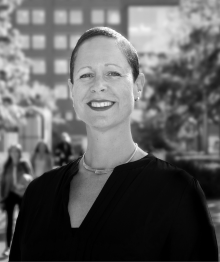New approaches to locally-led security and development. Insights from Kenya…
BY NAOMI van STAPELE
We’re excited to share our latest thinking on building collective action to drive transformational change; just click the link above to download Systemcraft. Continuing this theme, we are delighted to welcome Dr Naomi van Stapele to share her experiences working with gang members in Kenya to pioneer powerful new approaches to locally-led community stability and development. Read on!
Amplifying voices through Community-led Research and Action
Jijo stared into the distance, his mind clearly elsewhere. Mama Soni interrupted his stare by loudly placing a steamy cup of milky sweet tea in front of him on the worm-infested table in the roadside hotel in Mathare, a Nairobi ghetto. Jijo regained his thoughts and said: “At first I did not know what this is, CLRA [Community-led Research and Action].” A smile slowly spread across his face. “All of us [participating in CLRA], we were unsure how we could be researchers, we were just ghetto youth.”
Jijo reflected here on his first experiences as a community researcher with a CLRA project by Ghetto Foundation and the VU University of Amsterdam that ran from 2018 to 2019. This project involved 15 youths from Mathare who all tried to escape a life of crime. From the onset, the participants charted the way forward in research and action, determining all research activities from design, implementation, analysis and even developing a book with their narratives. Ghetto Foundation and myself, as one of the professors from the VU University, took a back seat to facilitate the process, but the research was firmly led by those most knowledgeable about their own lives.
“I felt good that these professors saw me as a researcher, but in the beginning I did not understand. Later, after weeks of doing research, I realised that my life is research. I know so much, and what I know is important. I never realised that before.”
Jijo expounded on the empowering impact of doing research by comparing himself before and after the CLRA project: “The good thing was, this research we did it in my own language, Sheng, not English. And we did ethnography haha I know this word now, haha, I not only know this word: I am an ethnographer! Now I know how to conduct ethnographic research. I was part of a gang, but through CLRA I realised myself and what I can do with my talents. I am now part of youth groups, of many different projects. I am a role model in my community.”
At its core, an approach to inform and empower
At its core, CLRA is an empowerment initiative. The research that Jijo and his peers designed and conducted, as part of the CLRA project, provided him with new ways of seeing his position within his community. He used to feel very isolated and neglected by family and neighbours, which had made him feel angry all the time. Through his own research, he understood that many community residents around him saw he and his gang as a threat to local security. This new knowledge prompted him to change his ways and become a local security provider. In this role the group gradually received recognition from local authorities that allowed them to also set up several small projects near their hang-out.
“I used to be just a thug, people said, now I know my self-worth, I know what I can do, and I can lead my group in positive things. After CLRA, haha, you can’t stop asking yourself questions, you can’t accept rumours but you do research to understand what is going on and then we use that information to come up with a solution together, as a group.”
Emerging models for driving locally-led responses to local-issues
Jijo’s success story is one of a growing body of evidence that those involved with CLRA pilot initiatives are seeing. I am excited to be working with Wasafiri, and other partners also working with young men and women in Kenya at risk of crime and violence, to think about how we can empower the most marginalized members of society to recongnise their own power and agency.
Continue to watch this space, as future blogs will showcase more stories of voices amplified through this unique approach to community-led research and how Wasafiri plans to harness the collective effort of partners working in similar ways to propel conversations about truly locally-led approaches to inclusive development and stability.
Dr Naomi van Stapele, Associate Professor Inclusive Education, The Hague University of Applied Sciences






